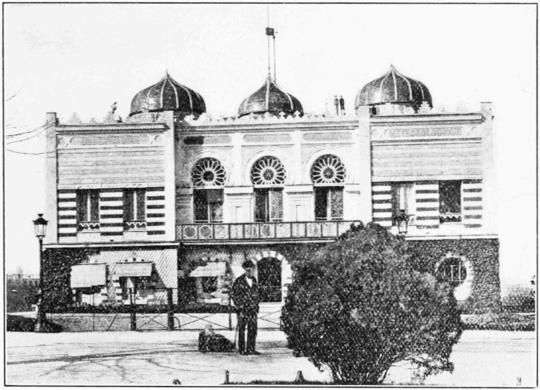Since that time the government has been generous. The republic has not been behind the kings in providing the observatory with resources. Its directors have been men of the highest standing in their department, and the work which has been done has been of the utmost importance, unsurpassed by that of any observatory in the world. Equipments are now as good as can anywhere be found. The new building is entirely of stone. The new telescope has an aperture of 1 m. 7', Its weight is 10,000 kilograms. For twenty years improvements in buildings and apparatus have constantly been made. It is not probable that the observatory will be moved from Paris, although the site is not the best that could be obtained for all kinds of work. But as there are other observatories in France so that observations which can not be taken in Paris can be taken elsewhere, removal is
not essential, perhaps not desirable. The establishment for the study of astrophysics is at Meudon and is under the direction of Jansen. Its work is of the highest order.
The Pasteur Institut
Though not altogether a school for scientific research, the Pasteur Institute is one of the most interesting and instructive establishments in Paris. As it is the outgrowth of the energy, skill and devotion of one man, it is fitting that considerable space should be given to his history. Louis Pasteur, the son of a tanner, was born December 27, 1822, at Dole, in the Jura. He began his studies in the college of

